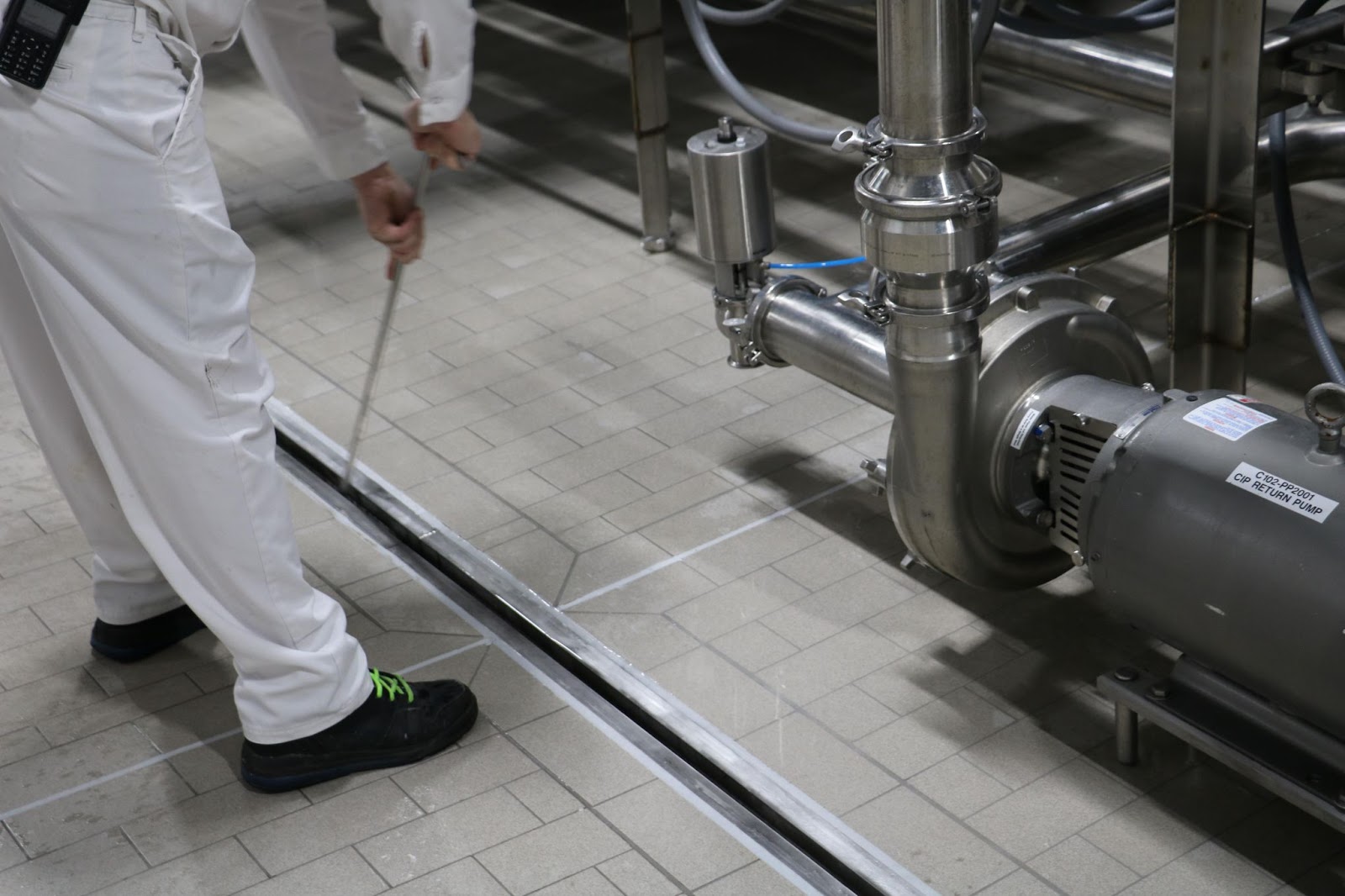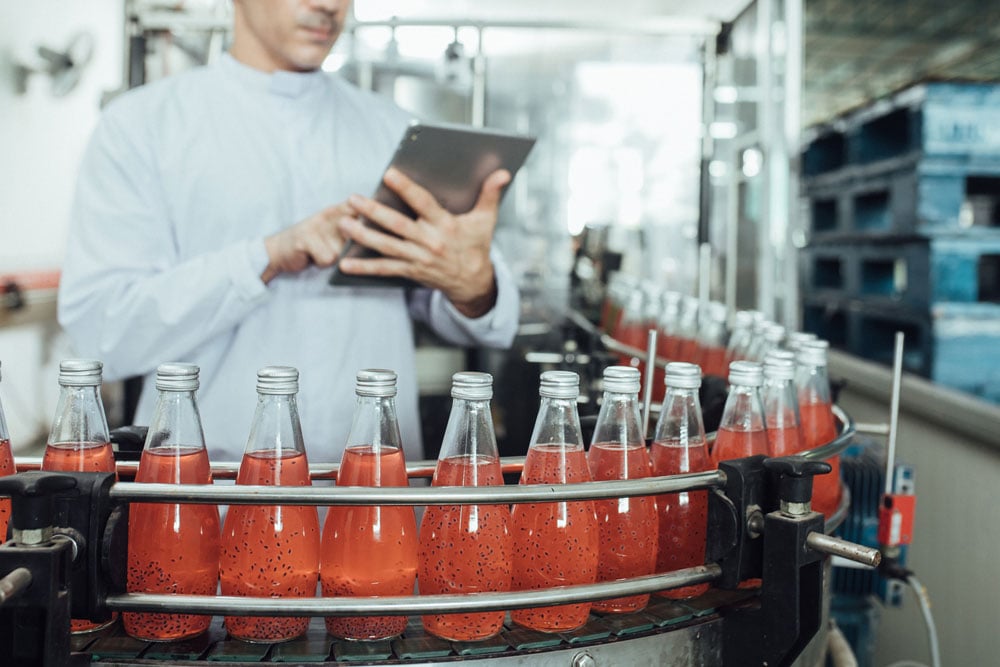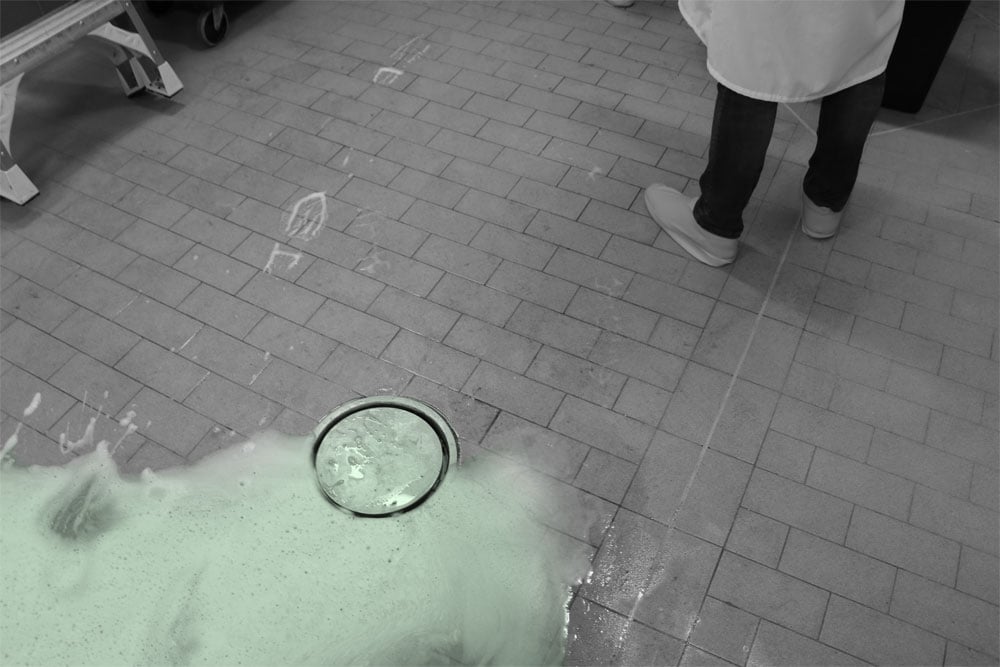The USA produced over 220 billion pounds of milk for human consumption in 2020, and with that level of production, it’s a wonder we don’t hear daily reports of mass foodborne illnesses caused by contaminated dairy products.
But that’s just a testament to how high the sanitation standards are in the industry, and they’re so stringent for very good reasons.
Here’s why rigorous cleaning and sanitation processes are so vital to the cheese industry.
Raw milk is a breeding ground for dangerous bacteria
Almost all of the milk and dairy products we buy in stores is pasteurized (in fact, it’s required by law). This means that the milk used has been heated to a specific temperature and then very quickly cooled, which essentially sanitizes it, killing any bacteria that may have found their way into it.
The many dangerous pathogens found in raw milk include Listeria, Campylobacter, E. coli, Salmonella, and other bacteria that are hazardous to human health. While the finished, pasteurized milk may be free of active bacteria, these pathogens may still find their way into “safe” products due to poor sanitation practices.
The bacterial cultures used in the cheese making process, however, are safe for human consumption, and even the molds that usually grow on cheeses are relatively safe (though you want to cut them off anyway).
The contamination prevention process
Preventing bacterial contamination before cheese leaves the plant is the first line of protection for consumers. It is only through the strictest cleaning protocols that this is possible.
The granular levels at which sanitation must be considered cannot be understated. Here are just a few of the components of a sanitary cheese plant:
-
Non-reactive surfaces: Stainless steel is the most common non-reactive material found in food processing facilities, since it is highly resistant to corrosion and extreme temperatures, which helps to prevent chemical damage. Imperfections can create harbor points where bacteria can cling and grow, and reactive materials may also chemically alter products, changing their taste or nutritional profile.
-
Effective, durable drainage system: The importance of floor drainage cannot be understated. Along with the bacteria found in dairy, plants are soils, which can contain a host of microorganisms. If these are not washed away and out of the facility, along with anything else that may reach the floor, then they may become airborne, with the potential to contaminate every area of the facility.

-
Thorough cleaning protocols: Having drainage that can withstand extreme temperatures and harsh chemicals will allow your staff to full wash down all equipment with the appropriate caustic cleaners. Clean-in-place (CIP) systems are ideal for soaking and flushing, especially in your drainage system, which is one of the worst breeding grounds for bacteria in any food facility.
-
Microbial analysis: Daily microbial analysis will tell you whether or not your cleaning processes are sufficient. All areas of the dairy facility must be tested to ensure that there are no lapses in sanitation. Maintaining records of these analyses is ideal, as a clear pattern of excellent sanitation will go a long way during an inspection.
Highly effective drainage for the cheese industry
With a production process that begins with a liquid, any cheese plant is going to see regular spillage, which can result in huge messes, slipping hazards, and unsanitary bacterial breeding grounds. Cheese plant employees rely on high-quality drainage to help keep themselves and the products they make safe.
While choosing drainage—regardless of whether you opt for a Slot Drain or a traditional trench drain system—the first consideration should be the material, and stainless steel is the best choice.
Stainless steel (304 or 316) is highly resistant to corrosion and extreme temperatures, making it the ideal material for all manner of cheese plant equipment, including your floor drains (and your drains are just as important as any other piece of equipment in your facility).
Questions?
If you have questions about cheese plant sanitation and how safe, durable drainage can help, contact a FoodSafe Drains expert today.


